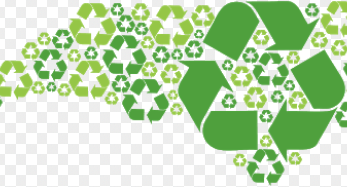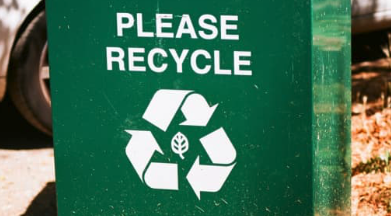QUESTIONS AND ANSWERS
IELTS Speaking Part 1 Topic Recycle
1. Do you recycle now? Why?
Yes, I do. I recycle on a daily basis. I separate the garbage in my house into paper, plastic, glass then take it to the recycling bin which is available in my condominium complex. Along with this, I reuse items as often as possible. For example, by cleaning glass jars and small pots, I can use them as small containers to store odds and ends. I also turn old clothes into other textile items such as cushion covers or teapot cozies. I believe that people need to recycle as much rubbish as they can to save the planet’s resources.
2. Did you recycle when you were a kid?
Sadly, no! When I was a child, I was not taught to be aware of the importance of The Three R’s: Reduce, Reuse,Recycle. In my country, the division of garbage into organic versus non-organic, or paper/can & bottle/glass/waste categories hardly exists. As there is no strict legal system in Vietnam, many families just throw away all they consider waste in the same bags.
3. Will you recycle in the future?
Yes, of course I will. As now I am aware of the importance of protecting the environment, I will try my best to reduce, reuse and recycle as much as possible. However, in my country, not everyone recycles. I hope that in the future, legal and economic solutions will be carried out to heighten public awareness, improve the effectiveness of plastics collection and design policies for recycling activities.
4. What kind of things do you recycle?
Well some common materials that I recycle are plastic, paper, glass, and metals such as aluminium and steel.
Aluminium noun /ˌæl.jəˈmɪn.i.əm/: Al a chemical element that is a light, silver-coloured metal, used especially for making cooking equipment and aircraft parts:
Example: We take all our aluminium cans for recycling.
5. Can you name products or materials that are commonly recycled?
Well, to my mind, the most commonly recycled materials are aluminum steel, plastic, glass paper and organics such as yard and kitchen waste. There are special containers for these types of waste in many cities all around the world, which makes it quite comfortable for people to sort waste out. Aluminum is usually obtained from cans, banking tins, curtain rods, foil, spray cans and aluminum siding. It is 100% recyclable and can be reproduced over and over again. Steel is obtained from cans cars, appliances and construction materials and it is usually remelted before being refused, paper includes newspaper, office paper junk mail and even paper towels, and=can be recycled only so many times as it’s made from plant fibers that become shorted during paper- making. Glass is usually taken from bottles and jars. It’s very easy to recycle. Waste bottles and jars can be melted down and used again and again. And plastic is obtained from plastic bottles and bags.
6. Why have people’s attitudes towards recycling changed over the last several years?
Well, I guess, first of all , because the recycling message has reached more people now know that everybody wins with recycling, which also explains why more and more of them have started taking responsibility for their waste. Oh, and one more thi ng that has gai ned growing interest for recycling is the fact that authorities in many cities have started to orange col I ecti ons of recyclable waste, making it more comfortable for people to address the issue of ensuring a greener future for the generations to come.
7. Do you think recycling is important?
A firm ” yes” as it reduces the population it also reduces the need for raw materials so that the rainforests can be preserved. It lets both people and companies benefit reducing landfills and the amount of unhealthy greenhouse gas emissions, and this way improving health of the former, and reducing financial expenditure thanks to saving energy for the latter. So, recycling is definitely very important in our present-day world
VOCABULARY
1. Odds and ends (noun) various things of different types, usually small and not important, or of little value.
There are still a few odds and ends to bring over the new house.
2. Heighten (sb’s) awareness (of sth) make people realize something more clearly
Employees in this company are using a heightened awareness of work flow.

